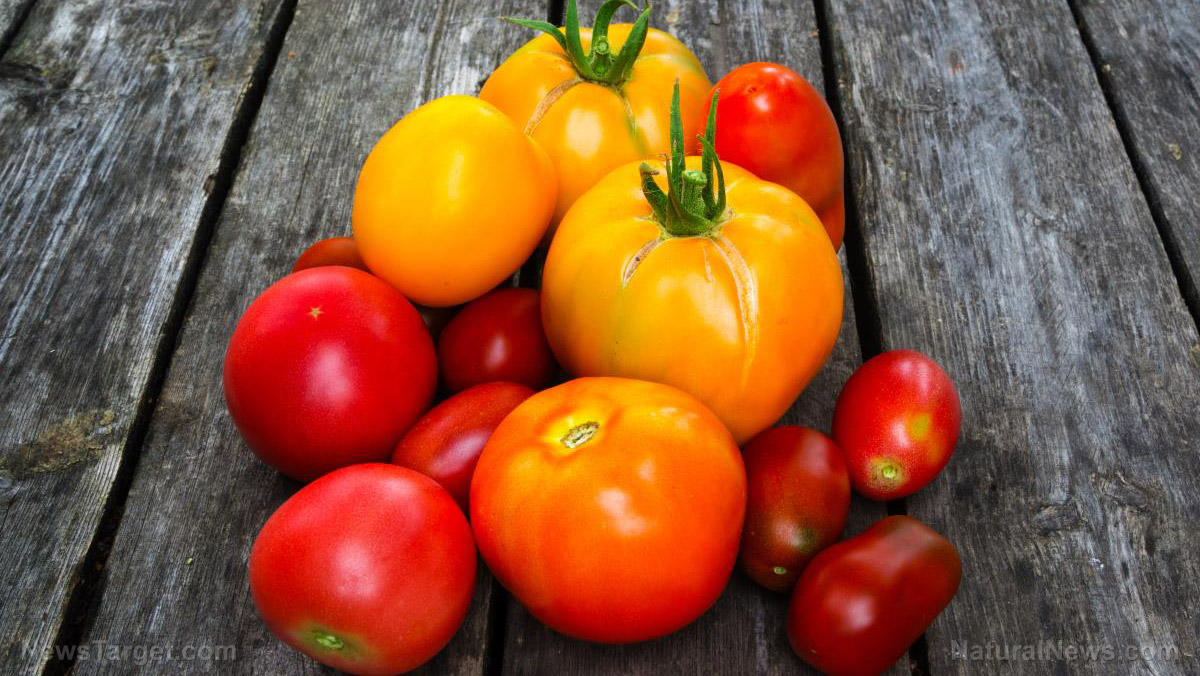
Advertisement
Lycopene, which you can often read on the packaging of tomato-based products, is a plant nutrient commonly associated with tomatoes. Studies have found that, besides giving these fruits their red color, lycopene is also responsible for their antioxidant benefits.
However, lycopene is not exclusively found in tomatoes. A lot of fruits and vegetables contain varying concentrations of this health-promoting nutrient — even those that don’t possess a rich red or pinkish color. In fact, a study that analyzed known sources of lycopene found that watermelons contain the highest amount of lycopene, even more than tomatoes.
And in case you’re wondering if that’s a good thing, here are some great health benefits associated with lycopene.
Why you need lycopene
Lycopene belongs to the carotenoid family, which are fat-soluble plant pigments that give most fruits, vegetables and leaves their yellow, orange or red hues. The most well-known and well-studied carotenoid is beta-carotene, which serves as a precursor for vitamin A. Carotenoids serve plants in two important ways: one, by absorbing energy from sunlight for use in photosynthesis, and two, by quenching or dissipating excess light energy, which can be damaging to natural photosynthetic systems.
In the human body, carotenoids like lycopene and beta-carotene function as antioxidants, which protect cells from the damaging effects of oxidation. This process occurs when harmful molecules called free radicals outnumber the antioxidants present in the body. Free radicals are linked to the development of serious diseases, such as heart disease, Alzheimer’s disease, diabetes and cancer.
Here are some other benefits linked to lycopene and its antioxidant properties:
- Protects against damage caused by chemical pesticides, herbicides and monosodium glutamate (MSG).
- Prevents or slows the progression of breast, prostate and renal cancer.
- Promotes heart health by decreasing bad LDL cholesterol and increasing good HDL cholesterol.
- Offers skin protection against UV radiation.
- Helps delay or prevent the formation of cataracts.
- Preserves brain function by preventing memory loss and age-related diseases.
- Helps slow down the death of bone cells.
While lycopene is now available as a supplement, the best source of this nutrient is still fresh fruits and vegetables.
Food sources of lycopene
Most foods with a natural red or pink color contain lycopene. Research suggests that consuming lycopene-rich foods on a regular basis can reduce your risk of many diseases, including cancer. This is thanks to lycopene’s nature as an antioxidant that neutralizes free radicals in the body.
Without antioxidants, harmful free radicals can damage healthy cells and cause inflammation. Persistent inflammation is said to trigger a cascade of disease-causing effects, which ultimately lead to chronic health conditions.
Another benefit resulting from lycopene’s antioxidant activity is keeping the skin young and healthy. That’s because it can also limit the production of free radicals, which is caused by overexposure to the sun, environmental pollutants or cigarette smoke. Lycopene’s protective function allows your skin to retain moisture and elasticity even as you age.
For great skin and overall health, here are some sources of lycopene that you can add to your diet:
- Guava
- Tomato
- Watermelon
- Jackfruit
- Banana
- Grape
- Orange
- Papaya
- Grapefruit
- Red bell peppers
- Persimmon
- Asparagus
- Red cabbage
- Mango
Lycopene is not toxic in anyway and offers substantial benefits when consumed regularly. However, consuming too much lycopene — usually through a combination of diet and supplements — can cause a type of skin discoloration known as lycopenodermia. To avoid this problem, don’t take supplements if you’re eating foods already rich in lycopene. Also, before taking lycopene supplements, consult with your natural health practitioner to make sure they won’t interfere with any medication you are currently taking.
Learn more about other antioxidant nutrients like lycopene at Antioxidants.news.
Sources:
Advertisements







